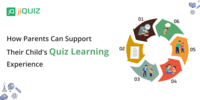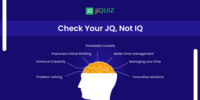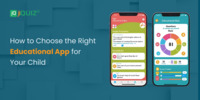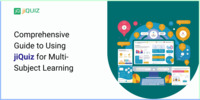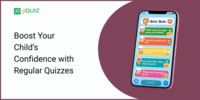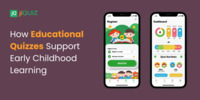- Jun 26, 2025
- Educational
- 494
Share this post on:
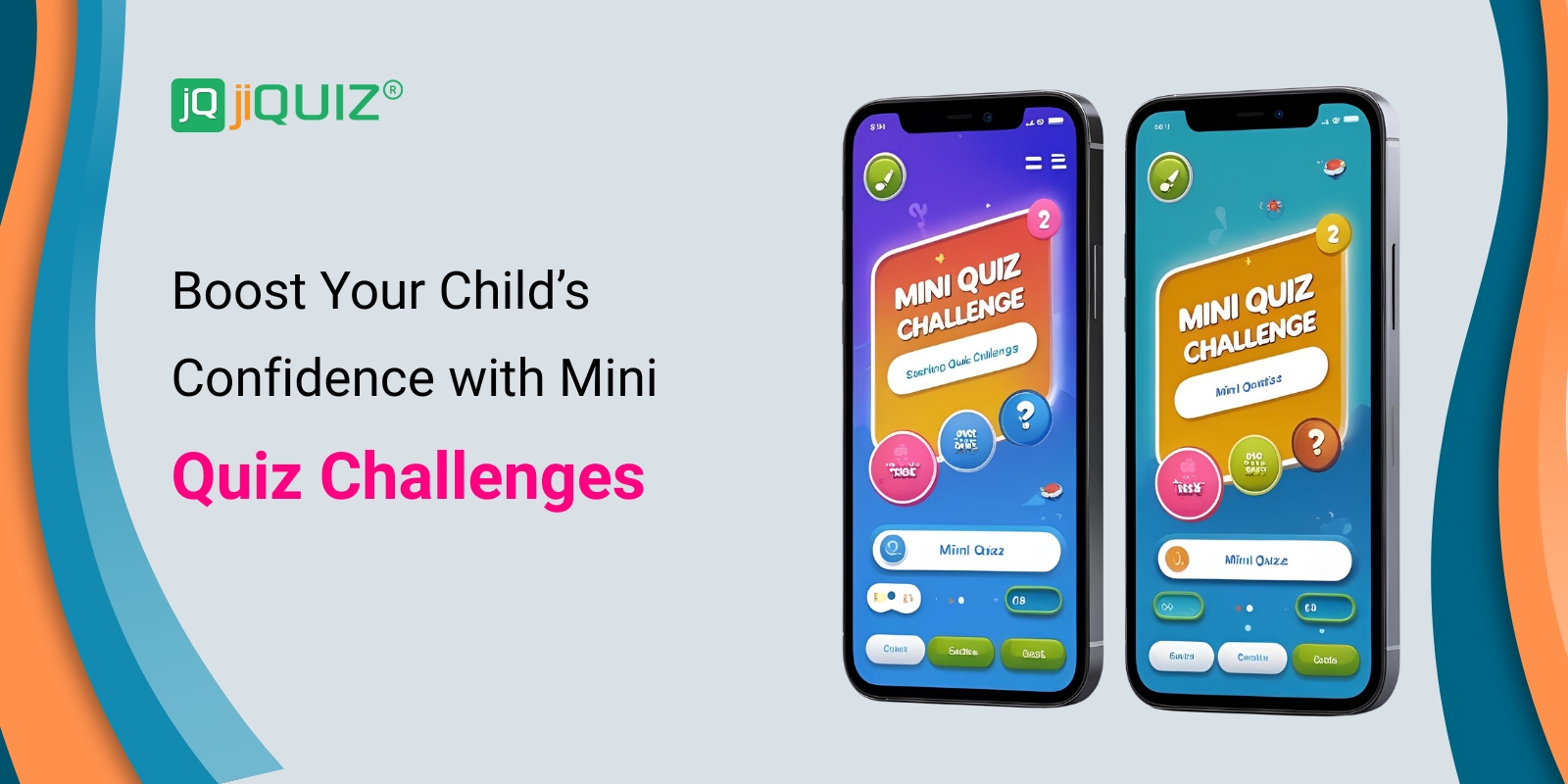
As parents, we all want our children to thrive. But beyond academic success, we yearn for them to possess a strong sense of self-belief – confidence. Confidence isn’t arrogance; it’s the quiet assurance that they can handle challenges, learn from mistakes, and ultimately, succeed. While encouragement and praise are vital, sometimes a more structured approach can be incredibly impactful. Enter: Mini Quiz Challenges!
These aren't about high-pressure testing; they’re about creating opportunities for learning, small victories, and building that invaluable "I can!" attitude. This blog post will explore how to implement mini quiz challenges in a way that's fun, engaging, and genuinely boosts your child's confidence, regardless of their age or learning style.
Why Quiz Challenges for Confidence? Beyond Just Knowledge
Before diving into the “how,” let’s understand why this works. Traditional tests can be anxiety-inducing for many children. Mini quiz challenges, when designed correctly, avoid those pitfalls and offer several key benefits:
- Focus on Effort, Not Just Outcome: The emphasis shifts from “getting the right answer” to appreciating the effort invested in learning. We can praise their problem-solving strategies, their perseverance, and their willingness to try, even if they stumble.
- Small, Manageable Steps: Large tasks feel overwhelming. Mini quizzes break down learning into bite-sized chunks, making the process less daunting. Each completed quiz is a milestone, a reason to celebrate.
- Immediate Feedback & Correction: Unlike tests graded days later, mini quizzes offer immediate feedback. This allows children to understand where they went wrong and correct their understanding right away. It’s a powerful learning loop.
- Sense of Control: Allowing children to choose topics, difficulty levels (within reasonable limits!), and even the format of their quiz gives them a sense of ownership and control over their learning journey.
- Growth Mindset Development: By framing quizzes as learning opportunities, we encourage a growth mindset – the belief that abilities can be developed through dedication and hard work. Mistakes become stepping stones, not failures.
- Reduced Test Anxiety: Regular, low-pressure quizzes can actually reduce test anxiety by familiarizing children with the assessment format in a supportive environment.
Age-Specific Strategies: Tailoring Challenges for Different Stages
The approach to mini quiz challenges will differ significantly depending on your child’s age and developmental stage.
- Preschool (Ages 3-5): Games, Not Quizzes! At this age, the concept of a "quiz" is far too formal. Transform learning into a playful game.
- Format: Oral questions, matching games (pictures to words), simple sorting tasks.
- Topics: Colors, shapes, animals, letters, numbers 1-10.
- Example: "Can you find all the red things in the room?" "Let's match the picture of a dog to the word 'dog'." Use positive reinforcement – “Wow, you found all the red things so fast!”
- Focus: Make it fun, interactive, and full of enthusiasm. No pressure!
- Early Elementary (Ages 6-8): Simple, Visual Quizzes
- Format: Short, written quizzes with multiple-choice options, picture prompts, and fill-in-the-blanks. Keep it short – 5-10 questions max.
- Topics: Reading comprehension (short passages), basic math facts, science concepts (animals, plants), social studies (family, community).
- Example: “A dog says… (a) Meow (b) Woof (c) Moo.” "What number comes after 7?"
- Focus: Visuals are key! Use colorful worksheets, illustrations, and even incorporate online games.
- Late Elementary/Middle School (Ages 9-13): More Complex Topics & Choices
- Format: Written quizzes, online quizzes, oral quizzes – offer choices! Increase the number of questions (10-15). Incorporate short-answer questions.
- Topics: Everything from science, history, and literature to current events. Encourage them to choose topics they are genuinely interested in.
- Example: “Explain the difference between a noun and a verb.” “What were the main causes of the American Revolution?”
- Focus: This age group is starting to develop a more critical thinking ability. Encourage them to explain how they arrived at their answers.
- Teenagers (Ages 14+): Self-Directed Learning & Real-World Application
- Format: Online quizzes, practice exams, debates, presentations – let them take the lead.
- Topics: Anything they are studying in school, or subjects they are passionate about.
- Example: “Research and present on a current environmental issue.” “Take a practice SAT/ACT section.”
- Focus: The emphasis is on self-directed learning, critical thinking, and applying knowledge to real-world scenarios.
Designing Effective Mini Quiz Challenges: The "How-To"
Here's a breakdown of best practices for creating mini quiz challenges that build confidence:
- Start Small & Simple: Don't overwhelm your child with complex questions or lengthy quizzes. Begin with just a few questions and gradually increase the difficulty.
- Choose Engaging Topics: Let your child choose topics they find interesting. This increases motivation and makes learning more enjoyable.
- Variety is Key: Mix up the question formats – multiple choice, true/false, fill-in-the-blank, short answer. Keep it interesting!
- Provide Clear Instructions: Ensure your child understands exactly what is expected of them.
- Offer Positive and Constructive Feedback: Focus on their effort and progress, not just the final score. "I see you really worked hard on this! Let’ve look at this question together and see if we can understand it better."
- Embrace Mistakes as Learning Opportunities: Normalize mistakes and encourage your child to learn from them. "Everyone makes mistakes! Let's figure out what happened and how you can improve next time."
- Make it Fun! Add elements of playfulness – use rewards, create a game board, or incorporate friendly competition.
- Regularity, Not Pressure: Schedule mini quiz challenges regularly – maybe once or twice a week – but avoid turning them into high-pressure events.
- Tailor to Learning Styles: Consider your child's learning style (visual, auditory, kinesthetic) and adapt the quiz format accordingly. Visual learners benefit from images and diagrams; auditory learners prefer oral quizzes; kinesthetic learners thrive on hands-on activities.
- Celebrate Successes – Big and Small: Acknowledge and celebrate every accomplishment, no matter how small. This reinforces positive feelings and motivates them to continue learning.
Potential Pitfalls & How to Avoid Them
- Turning into a Competition: Avoid comparing your child’s performance to others. Focus on their individual progress and celebrate their achievements.
- Fear of Failure: Create a supportive environment where mistakes are seen as opportunities to learn. Reassure your child that it's okay to struggle.
- Burnout: Don't overload your child with too many quizzes. Maintain a balance and ensure they have plenty of time for other activities.
- Neglecting Other Learning Methods: Mini quiz challenges should complement, not replace, other learning methods such as reading, hands-on activities, and discussions.
Conclusion: Cultivating Confidence, One Quiz at a Time
Mini quiz challenges are a powerful tool for boosting your child’s confidence and fostering a love of learning. By focusing on effort, providing positive feedback, and creating a supportive environment, you can help your child develop the "I can!" attitude that will serve them well throughout their lives. Remember, it’s not about the score; it’s about the journey of learning and growing!

